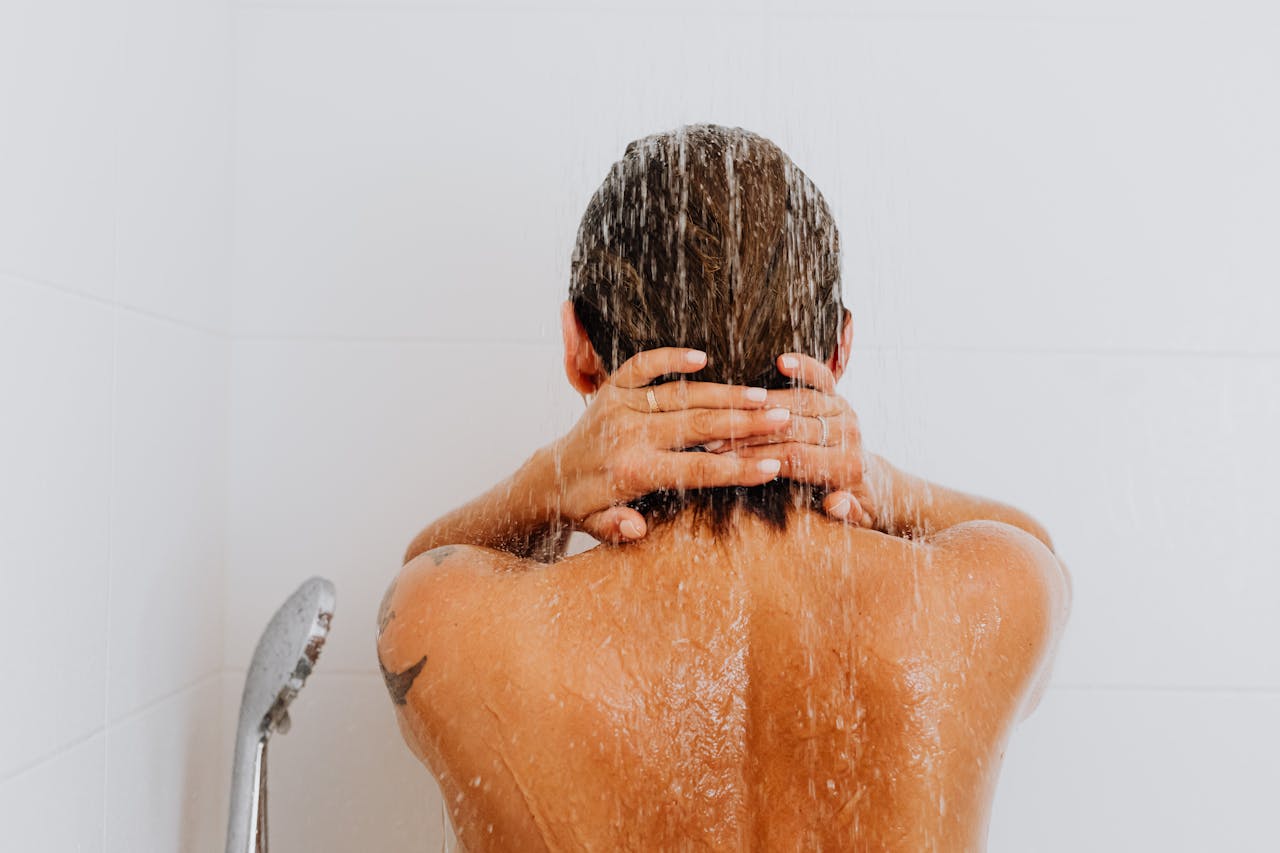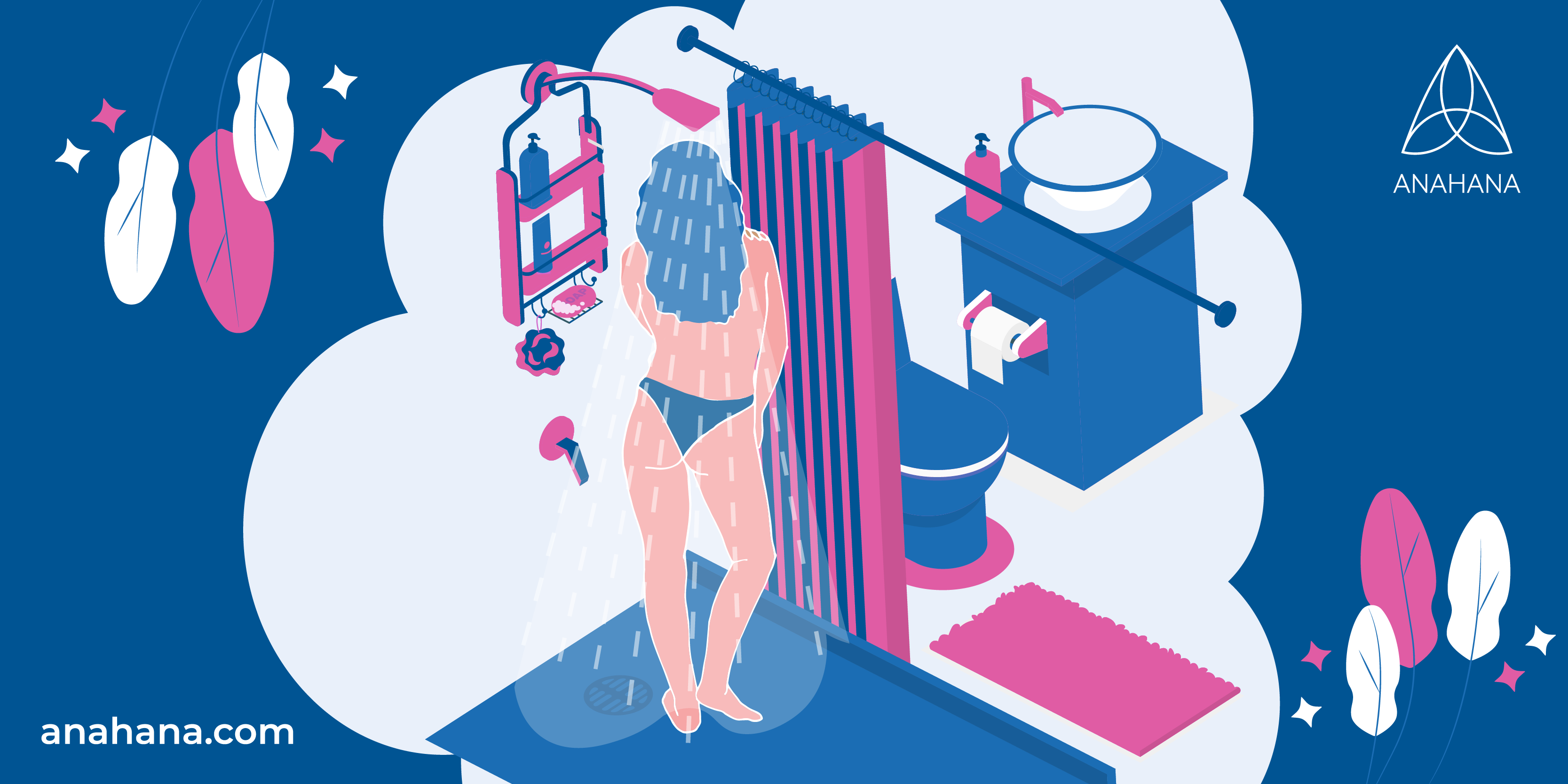
Table of Contents
Cold showers have profound benefits, earning them new popularity in recent years. They serve as a way to help people wake up in the morning and provide many health benefits that can improve your overall well-being.
Key Takeaways
- Immune System Enhancement: Cold showers can boost your immune system by increasing white blood cell production, helping to fight off infections.
- Mental Health Benefits: They can reduce symptoms of depression and improve mood by stimulating the release of endorphins, enhancing overall well-being.
- Physical Health Improvements: Regular cold showers can reduce inflammation and pain, promote muscle recovery, and improve circulation and skin health.
- Weight Management Support: When the cold water hits the body it can activate brown fat, which helps burn calories and supports weight loss efforts.
Cold Shower Benefits
This article will discuss the top twelve health benefits of taking cold showers. From weight loss to boosted immunity, and stronger confidence.
1. Boosted immunity
Taking a cold shower can help to boost your immune system by stimulating the production of white blood cells. White blood cells are responsible for fighting off infection and disease.
When you expose yourself to a cold temperature, you must work harder to maintain your body temperature. The body will increase white blood cells to keep your core temperature, giving your immune system a much-needed boost. Exposing yourself to the cold on a regular basis will allow you to take fewer sick days, with a 2016 study finding that participants were 29% less likely to need to call in sick to work.
2. Relieved depression
Cold showers have profound mental benefits and can be a potential treatment for mild to moderate depression. Due to the high density of cold receptors in the skin, a cold shower sends an overwhelming amount of electrical impulses from peripheral nerve endings to the brain, resulting in an anti-depressive effect.
Cold temperatures help to stimulate the release of endorphins, which are the body’s natural feel-good chemicals. Endorphins help to improve mental health and reduce feelings of anxiety and stress, reducing depressive symptoms.
3. Reduced inflammation
If you suffer from conditions like arthritis or joint pain, cold showering can help by reducing inflammation.
Cold temperatures help to constrict blood vessels and reduce swelling and lower the damaged tissue's temperature. Reduced inflammation can lead to reduced pain and improved mobility.
4. Boosted circulation
Cold showers can help to boost circulation by causing the blood vessels to constrict, helping to improve blood flow and deliver more oxygen to the cells. Increased circulation is essential for well-functioning organs, a sharp mind, and the ability to heal wounds fast.
It can also help reduce cellulite appearance and give your skin a healthy glow.
5. Easier to wake up

If you’re struggling to get out of bed in the morning, a cold shower can help you to wake up.
Cold water triggers our sympathetic nervous system, which is responsible for our fight or flight response, stimulating the production of adrenaline, giving you more energy, and pumping blood.
Cold conditions put your circulatory system into overdrive, causing your heart to pump more efficiently and causing overall circulation throughout your body to improve. This can help you to feel more alert and wake up easier.
6. Improved muscle recovery
Cold therapy can reduce muscle soreness for pain relief, often used as sports recovery by athletes through ice baths.
If you’re an athlete or enjoy working out, cold showers can help improve muscle recovery. Cold temperatures help to reduce inflammation and swelling. Reducing swelling also slows the rate at which pain signals are transmitted to the brain, leading to reduced pain and stiffness.
Cold showers can also help to prevent injuries by improving blood flow and flexibility.
7. Weight loss
If you’re trying to lose weight, cold showers can help you to reach your goals. As your body fights to stay warm, the heightened reaction will temporarily boost your metabolism and help you shed some weight.
Research has shown that cold showers (and exposure to cold in general), in addition to increasing metabolic rate directly, stimulate the activation of brown adipose tissue (good fat). Brown fat is a specific type of fat tissue that can generate heat and energy by burning calories. This, in turn, will result in weight loss.
8. Better hair and skin quality
Cold showers can help to improve the condition of your hair and skin.
The cold water helps close the pores, preventing acne, and locks in moisture, which can keep your skin hydrated. Our pores open when we take a hot shower, but cold showers can temporarily tighten them and help you retain the natural oils in your skin and hair.
Furthermore, cold water doesn't wash away the natural oils on your skin as hot water does. Those prone to dry skin or concerned about dry, brittle hair might consider rinsing off with cold water every so often.
9. Increased alertness
A cold shower can help increase your alertness if you're tired or sluggish. Cold temperatures help to stimulate the production of adrenaline, which gives you higher energy levels. This can help you to feel more awake and improve your concentration.
10. Better mood
Cold exposure can help to improve your mood by stimulating the release of endorphins. Endorphins are the body’s natural feel-good chemicals, which can help to reduce stress and anxiety.
In one study, people who took cold showers reported feeling happier and more positive than those who didn’t.
11. Improved cardiovascular health
One of the most well-known benefits of cold showers is improved cardiovascular health. Cold water exposure helps to improve circulation and blood flow throughout the body. It also helps to reduce inflammation, which can lead to heart disease.
However, it is essential to note that those with a heart condition, high blood pressure, or a weakened immune system speak with their doctor before practicing cold showering.
12. Stronger confidence
Cold showers have positive effects on mental confidence. Starting every day with a cold shower means that you’re beginning the day by overcoming adversity. This builds mental toughness to overcome daily challenges.
By willingly allowing yourself to feel uncomfortable for a brief period, you might not only boost your immune system but also cultivate more willpower and “mental toughness” in the process.
Frequently Asked Questions About Cold Showers
How long should I shower in cold water?
Starting every day with a cold shower means that you’re beginning the day by overcoming adversity. This builds mental toughness to overcome daily challenges.
By willingly allowing yourself to feel uncomfortable for a brief period, you may also cultivate more willpower and “mental toughness”.
Is taking cold showers good for you?
Yes, cold showers are good for you. Cold temperatures help to improve circulation, boost metabolism, and release endorphins. Cold showers can also help to relieve depression, reduce inflammation, and enhance muscle recovery.
Should I take a cold or hot shower?
Hot showers still have significant benefits, including improved cardiovascular health, soothing stiff joints, and improved sleep. A steamy shower is also an excellent way to loosen up mucus that may be trapped in your airways and contribute to respiratory system issues like congestion.
However, cold showers have all the benefits previously mentioned. It is up to the practitioner to decide which they prefer.
Practitioners who want to do both may choose to take a contrast shower. This technique lets you get the water as cold as possible and stand in it for one minute. When the minute is up, you change the water to as hot as you can handle for an additional minute. Alternate between one minute each of cold and hot.
Are warm water showers as beneficial as cold showers?
Like most people, you may prefer warm showers to cold ones; however, there may be some tremendous benefits you're missing out on.
There is nothing wrong with taking warm showers. Temperature for taking a warm shower after a long day at work can feel restorative. Or, maybe a cold shower is just what your body craves to get up in the morning, or reduce muscle soreness.
Regardless of your preferred shower, you will likely feel better stepping out than when you stepped in.
How often should I take a cold shower?
The frequency of cold showers depends on your goals and tolerance for cold temperatures. You can shower in cold water daily if you’re trying to improve your circulation or boost your metabolism. If you’re using cold showers to relieve depression or pain, you may only need to shower a few times per week.
What are the side effects of cold showers?
The side effects of cold showers depend on your tolerance for cold temperatures. Most people can tolerate cold showers without any problems. However, some people may experience shivering, dizziness, or headache.
If you have a medical condition, you should speak to your doctor before taking on cold water therapy.
References
Bleakley C. M. & Davison, G. W. (2010, February). What is the biochemical and physiological rationale for using cold-water immersion in sports recovery? A systematic review. British Journal of Sports Medicine, 44 (3):179-87 What is the biochemical and physiological rationale for using cold-water immersion in sports recovery? A systematic review
Buijze, G. A., Sierevelt, I. N., van der Heijden, B. C. J. M., Dijkgraaf, M. G., & Frings-Dresen, M. H. W. (2016). The effect of cold showering on health and work: a randomized controlled trial. PLoS ONE , 11 (9), e0161749 The Effect of Cold Showering on Health and Work: A Randomized Controlled Trial - PMC
Mooventhan, A., & Nivethitha, L. (2014). Scientific evidence-based effects of hydrotherapy on various systems of the body. North American Journal of Medical Sciences , 6 (5), 199–209 Scientific Evidence-Based Effects of Hydrotherapy on Various Systems of the Body - PMC
Shevchuk, N. A. (2008). Adapted cold shower as a potential treatment for depression. (2008). Medical Hypotheses, 70 (5), 995–1001 www.sciencedirect.com/science/article/pii/S030698770700566X
Disclaimer
The contents of this article are provided for informational purposes only and are not intended to substitute for professional medical advice, diagnosis, or treatment. It is always recommended to consult with a qualified healthcare provider before making any health-related changes or if you have any questions or concerns about your health. Anahana is not liable for any errors, omissions, or consequences that may occur from using the information provided.

By: Clint Johnson
Clint is the driving force and founder of Anahana. Clint teaches Yoga, Pilates, mindful breathing, and meditation, catering to a global community of students and teachers.
